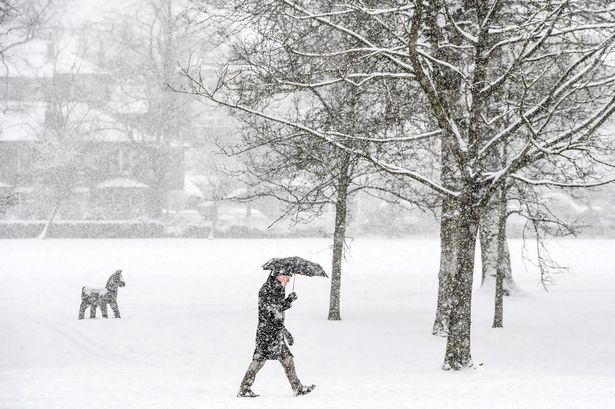The United Kingdom is bracing for a significant shift in weather patterns, with the Met Office issuing numerous warnings for a severe Arctic blast expected to sweep across the country. This impending cold snap is anticipated to bring plummeting temperatures, potentially reaching as low as -10°C (14°F) in some areas, alongside heavy snowfall and the rare occurrence of freezing rain. The confluence of these meteorological factors poses a serious threat of widespread disruption, affecting travel, infrastructure, and daily life. The Met Office’s warnings underscore the need for preparedness and caution in the face of these potentially hazardous conditions.
The primary concern is the significant drop in temperatures, which are forecast to fall well below freezing across much of the UK. This extreme cold, coupled with strong winds, will create dangerously low wind chill values, increasing the risk of hypothermia and other cold-related health issues. The elderly, vulnerable individuals, and those experiencing homelessness are particularly susceptible to these conditions. Local authorities and support organizations are urged to implement contingency plans to ensure the safety and well-being of those at risk. Furthermore, the prolonged period of sub-zero temperatures could lead to frozen pipes and other infrastructure problems, potentially impacting homes, businesses, and essential services.
Adding to the complexity of the situation is the prediction of heavy snowfall, with accumulations exceeding a foot in some regions. This heavy snowfall poses significant challenges to transportation networks, potentially leading to road closures, flight cancellations, and disruptions to rail services. The weight of the accumulated snow could also damage power lines and other infrastructure, potentially causing power outages and communication disruptions. Emergency services are preparing for increased demand as they respond to weather-related incidents and provide assistance to those in need. The public is advised to avoid unnecessary travel and to ensure they are adequately prepared for challenging conditions if travel is unavoidable.
Further complicating the forecast is the anticipated arrival of freezing rain. This rare meteorological phenomenon occurs when supercooled raindrops freeze upon contact with surfaces, creating a treacherous layer of ice on roads, pavements, and overhead power lines. Freezing rain poses a significant hazard to pedestrians and motorists alike, dramatically increasing the risk of slips, falls, and traffic accidents. The ice accumulation can also bring down power lines, causing widespread power outages and disrupting communication networks. The Met Office’s warnings emphasize the need for extreme caution and awareness, particularly during periods when freezing rain is expected.
The potential impact of this Arctic blast extends beyond immediate disruptions to travel and infrastructure. The agricultural sector is also vulnerable to the extreme cold and heavy snowfall, which can damage crops and livestock. Farmers are taking precautionary measures to protect their livelihoods, but the extent of the impact will depend on the severity and duration of the cold snap. The prolonged period of freezing temperatures can also affect wildlife, particularly those species that rely on open water sources for food and hydration. Conservationists are monitoring the situation closely and implementing strategies to mitigate the impact on vulnerable wildlife populations.
In anticipation of the severe weather, authorities are urging the public to take proactive steps to prepare. This includes stocking up on essential supplies, such as food, water, and medications, ensuring adequate heating fuel, and preparing for potential power outages. Individuals are advised to check on vulnerable neighbors and family members, and to stay informed about weather updates and travel advisories. The combination of extreme cold, heavy snow, and freezing rain presents a significant challenge, but by taking appropriate precautions and heeding the warnings issued by the Met Office, the public can minimize the risks and ensure their safety and well-being during this period of challenging weather.














